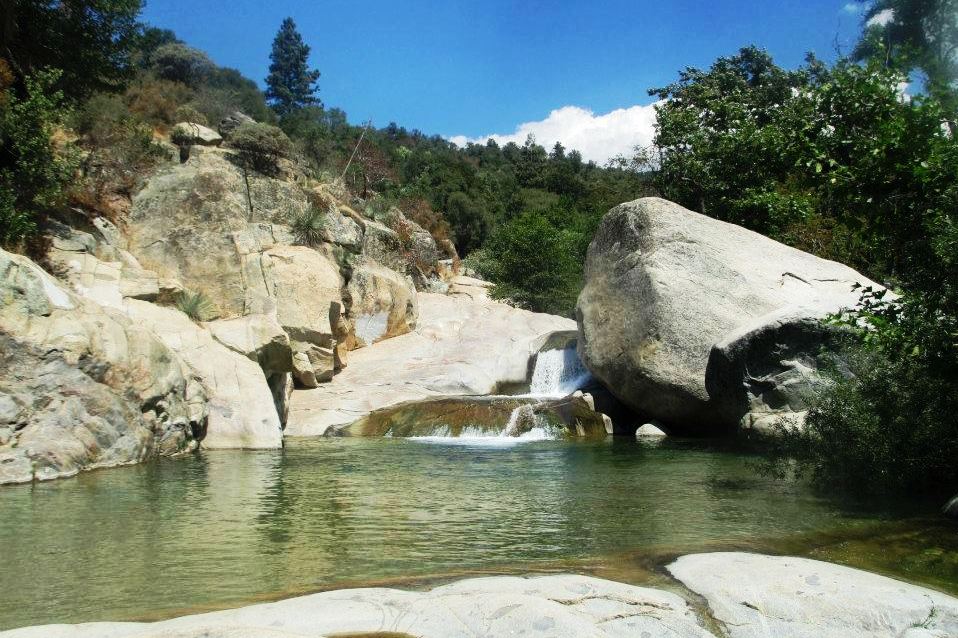
- Details
- By Native News Online Staff
WASHINGTON — U.S. Senators Alex Padilla and Dianne Feinstein, both Democrats, introduced legislation last Thursday to formally recognize the Tule River Tribe’s reserved water rights.
Senate Bill 4870, which also quantifies the amount of water from the south fork of the Tule River that Tribe has rights to and provides up to $568 million in funding, was referred to the Senate Committee on Indian Affairs. The legislation would finalize a multi-decade effort by the Tule River Tribe to provide clean drinking water.
As California and the West continue to experience a historic megadrought, the bill would help provide water security to Tule River citizens “now and for generations to come,” Padilla said in a statement today.
“Water is a sacred and necessary resource for Tribal Nations and for all people. It is long past time for the federal government to live up to its trust and treaty responsibilities to the Tule River Tribe. We must codify this water settlement and ensure the continued strength of Tribal Nations now and into the future.”
The Tule River Tribe – the second largest tribe in California with more than 1,900 members – often lacks enough drinking water during the summer and is forced to import bottled water for basic household needs, according to Feinstein.
“This is unacceptable, especially considering the tribe has been working for decades to restore sufficient water on its reservation,” Feinstein said in a statement.
In 1971, the Tribe began working to secure federally reserved water rights to store water on its reservation. Over the next three decades, it studied possible storage options and, in 2007, entered an agreement with downstream users to ensure the proposed storage project would not adversely affect their access to water.
Padilla and Feinstein’s legislation would ratify the agreement and would also transfer nearly 10,000 acres of federal lands in the Sequoia National Forest into trust so that the Tribe can manage the headwaters of the watershed.
Neil Peyron, chairman of the Tule River Tribe, praised Padilla and Feinstein for introducing the legislation — S. 4870, the Tule River Water Rights Settlement Act of 2022 — which resolves precisely 100 years of water claims and provides “certainty” to the Tribe’s right to clean water.
“The bill captures decades of hard work on a real solution in our drought-stricken homelands and is also beneficial to our neighbors, the downstream agricultural community, that depend on the South Fork of the Tule River,” Peyron said in a statement. “Our senators listened and agree that Tule River's water crisis must end in 2022.”
More Stories Like This
Gwich'in Tribal Governments Submit Comments Challenging Fish and Wildlife Service's Inadequate Environmental Review of Arctic Refuge Snow RoadRappahannock Tribe Challenges 9M-Gallon Water Plan
Feds release draft long-term plans for Colorado River management
Apache Leader Walks 60 Miles to Court Hearing That Will Decide Fate of Sacred Oak Flat
Rappahannock Tribe Raises Sovereignty and Environmental Concerns Over Caroline County Water Permit
Help us defend tribal sovereignty.
At Native News Online, our mission is rooted in telling the stories that strengthen sovereignty and uplift Indigenous voices — not just at year’s end, but every single day.
Because of your generosity last year, we were able to keep our reporters on the ground in tribal communities, at national gatherings and in the halls of Congress — covering the issues that matter most to Indian Country: sovereignty, culture, education, health and economic opportunity.
That support sustained us through a tough year in 2025. Now, as we look to the year ahead, we need your help right now to ensure warrior journalism remains strong — reporting that defends tribal sovereignty, amplifies Native truth, and holds power accountable.
 The stakes couldn't be higher. Your support keeps Native voices heard, Native stories told and Native sovereignty defended.
The stakes couldn't be higher. Your support keeps Native voices heard, Native stories told and Native sovereignty defended.
Stand with Warrior Journalism today.
Levi Rickert (Potawatomi), Editor & Publisher


